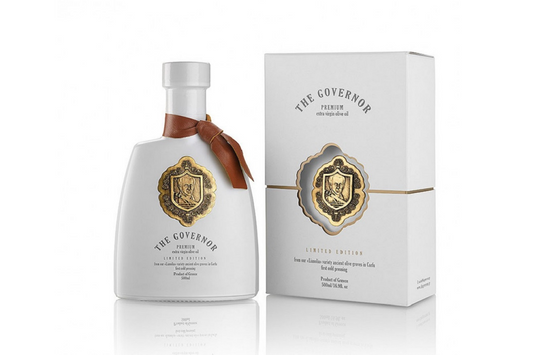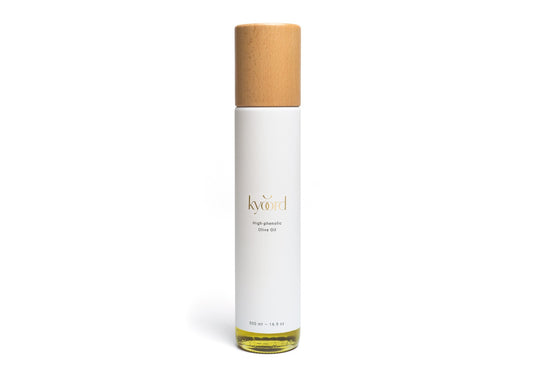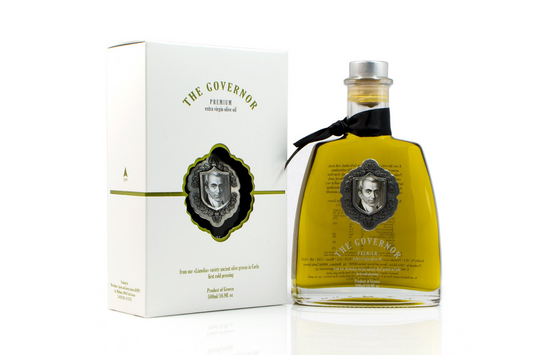Polyphenols are recognized for their significant health benefits, acting as vital nutrients that support various bodily functions. These naturally occurring compounds serve as plant-based protective agents, predominantly found in vibrantly colored fruits and vegetables.
Our olive oil is enriched with a high concentration of polyphenols. Each serving provides a potent dose of antioxidants, instrumental in neutralizing harmful agents such as ultraviolet radiation and environmental pollutants. Furthermore, they play a crucial role in mitigating inflammation, which is often the root cause of many chronic ailments.
Recent research indicates that the same polyphenols present in olive oil may enhance the composition of the gut microbiome.
What is the gut microbiome and how do polyphenols from olive oil support its functions?
This article will discuss the intricacies of the gut microbiome and explain how olive oil polyphenols contribute to its optimal functionality.
Key Takeaways
What is the Gut Microbiome?
The gastrointestinal tract is not just where digestion occurs; it also encapsulates a vast microbial ecosystem. This personal biosphere undergoes continuous transformation as you age and as your lifestyle adapts to your environment.
This internal habitat is akin to a dynamic city, inhabited by a multitude of bacteria, viruses, and fungi, each fulfilling a critical function in maintaining physiological health. These microorganisms are responsible for regulating our immune system, cardiovascular health, and metabolic balance.
With up to 1,000 bacterial species, your gut is a diverse community, each member contributing to your well-being.
What Does the Gut Microbiome Do?
Here’s a short list of the many ways this complex community of microorganisms keeps you healthy:
Metabolism
The gut microbiome engages in a critical biochemical interplay, where microbes metabolize dietary carbohydrates into essential nutrients. They ferment indigestible carbohydrates, yielding short-chain fatty acids (SCFAs), which serve as a pivotal energy source for intestinal cells.
Immune System
Resident gut microbes are also responsible for training the immune system to discern between benign and pathogenic organisms. They occupy ecological niches, thereby outcompeting and inhibiting the proliferation of harmful or disease-causing bacteria.
Digestion
Gut microorganisms facilitate the breakdown of complex carbohydrates and fibers, converting them into SCFAs, which are indispensable for the nourishment of the gut epithelium. Additionally, they are instrumental in synthesizing essential vitamins such as B1 (Thiamine), B9 (Folate), B12 (Cobalamin), and K.
Biochemical Barriers
The microbiota fortifies the intestinal barrier, ensuring the integrity of the gastrointestinal tract and the proper functioning of its selective permeability.
Benefits of Olive Oil Polyphenols for Gut Health
A 2023 research published in Frontiers in Nutrition underscores the significance of maintaining a robust gut microbiome for comprehensive and enduring health. Here is a concise version of that study:
Study Overview
The researchers wanted to find out the effects of olive oil polyphenols on gut bacteria, with a special focus on the Enterococcus genus. They chose this particular genus because it’s among the most studied, is a commensal bacteria or microorganism that lives inside us without causing harm, and is also used as a probiotic.
The question they wanted to answer: How do olive oil polyphenols affect gut microbiota?
Methodology
The experiment involved using mice subjects over a 12-week period. In these 12 weeks, the researchers fed three groups of mice a diet enriched with three types of fats:
- Butter
- Refined olive oil
- Extra virgin olive oil (EVOO)
Summary of Findings
After 12 weeks, scientists found that among the three types of diets, the ones that made use of EVOO showed a gut microbiome that was less resistant to antibiotics and had a more diverse or beneficial profile in terms of gut bacteria.
The researchers point to oleuropein, a polyphenol found in olive oil, as one of the key reasons why it has a beneficial prebiotic effect. Particularly, this allows the gut to prioritize the growth of beneficial intestinal microorganisms while also inhibiting growth of “virulence factors,” or molecules that help bacteria cause disease in people.
Can olive oil improve gut health?
To achieve longevity and optimal health, maintaining a gut environment that is both healthy and functional is critical. One dietary strategy to support this goal is the inclusion of high-phenolic olive oil in one’s nutritional regimen.
Taking high-phenolic olive oil as part of your everyday health regiment represents a proactive investment in long-term health, fostering a robust and varied microbial population within the gut.
By prioritizing the intake of high-phenolic olive oil, you can leverage its inherent health advantages, providing your gut microbiota the necessary support for overall health and wellness.
FAQs About Olive Polyphenols and Gut Health
We answered some of the internet's most asked questions surrounding olive oil polyphenols and their impact on gut health.
Is Two Tablespoons of Olive Oil a Day Too Much?
Taking two tablespoons of olive oil daily is generally considered safe and is often encouraged from a health viewpoint. However, it’s important to account for its high calorie content, especially if your goal is to maintain a healthy weight.
Does Olive Oil Get Rid of Inflammation in the Body?
Extra virgin olive oil is lauded for its antioxidant composition and anti-inflammatory attributes. It is abundant in oleic acid and contains oleocanthal, a compound with mechanisms similar to anti-inflammatory medications like ibuprofen.
Are Polyphenols Good for Your Gut?
Polyphenols possess antioxidant and anti-inflammatory properties, which help prevent diseases linked to inflammation. These compounds also support the microbiome, fostering a healthy digestive system. By encouraging the growth of beneficial bacteria and inhibiting harmful ones, polyphenols contribute to a balanced gut environment.
Are Polyphenols a Prebiotic?
Not exactly. You can say polyphenols exhibit prebiotic-like effects. They are not utilized by gut bacteria in the same way as traditional carbohydrate prebiotics. However, they do influence the gut microbiota, promoting the growth of beneficial bacteria and contributing to overall gut health.
What Are the Best Polyphenols for Gut Health?
The most beneficial polyphenols for gut health include cacao flavanols, green tea catechins, and quercetin found in apples and onions. These compounds support the growth of health-promoting bacteria like Lactobacillus and Bifidobacterium.
Is Olive Oil Good for Stomach Inflammation?
Olive oil, particularly extra virgin olive oil, is effective against stomach inflammation. It contains oleic acid and oleocanthal, which have anti-inflammatory properties. These components can reduce inflammatory markers like C-reactive protein, making olive oil beneficial for those with inflammatory stomach conditions.
Is Olive Oil a Prebiotic?
While olive oil is not a prebiotic in the traditional sense, it contains polyphenols that act as prebiotics. These antioxidants promote a healthier microbiome by increasing the number and diversity of beneficial gut bacteria.









